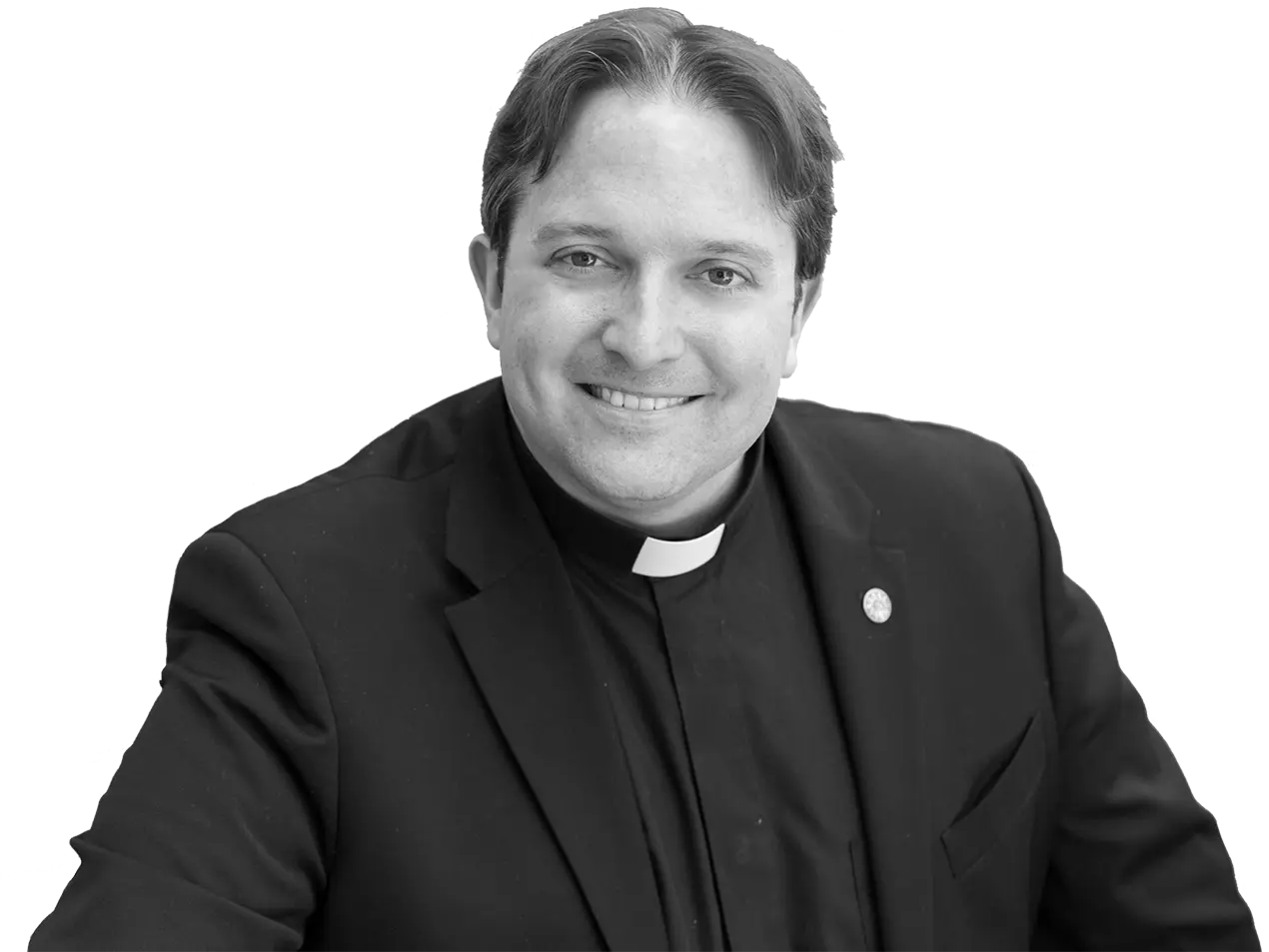 Fr Matthew Charlesworth SJJesuit PriestSociety of JesusJesuit priest working in Southern AfricaFr. MatthewCharlesworthSJ
Fr Matthew Charlesworth SJJesuit PriestSociety of JesusJesuit priest working in Southern AfricaFr. MatthewCharlesworthSJ
 7th Sunday in Ordinary Time
7th Sunday in Ordinary Time
Date: | Season: Ordinary Time before Easter | Year: C
First Reading: 1 Samuel 26:2, 7–9, 12–13, 22–23
Responsorial Psalm: Psalm 103:1–4, 8, 10, 12–13
| Response: Psalm 103:8a
Second Reading: 1 Corinthians 15:45–49
Gospel Acclamation: John 13:34
Gospel Reading: Luke 6:27–38
Preached at: the Chapel of the Most Holy Name, Kolvenbach House in the Archdiocese of Lusaka, Zambia.
There are moments in life when the Gospel does not merely challenge us; it confronts us. Today is one of those moments. “Love your enemies, do good to those who hate you, bless those who curse you, pray for those who mistreat you.” These words are not a suggestion, not a gentle invitation to kindness when convenient. They are a command, a call to arms in the battle for the human soul. And it is a battle, make no mistake. For nothing is harder, nothing cuts deeper against the grain of our instincts than to love in the face of hatred.
David understood this. In the reading from Samuel, we find him at a moment of decision. Saul, the king who has hunted him, who has sought his death, lies before him, vulnerable, exposed, powerless. And what does David do? He spares him. His men see this as weakness; they urge him to strike, to seize his moment of vengeance. But David sees something else. He sees a man anointed by God, and he refuses to lift his hand against him. This is not cowardice. This is courage of the highest order. For David understands that true strength is not found in the blade of a sword but in the restraint of a heart that trusts in God.
And so the Psalmist cries out, “The Lord is kind and merciful,” and we must ask ourselves: do we believe this? Do we live as though this is true? Do we reflect the mercy we so readily ask for? It is easy to call for justice when we have been wronged, but do we call for mercy with the same fervor? It is easy to demand righteousness from others, but do we demand it from ourselves? The world tells us to stand our ground, to hold our grudges, to return fire with fire. But Christ stands before us and says, “No. Love. Forgive. Be merciful, just as your Father is merciful.”
This is the essence of Catholic Social Teaching—a recognition that love is not weak, that mercy is not passive. Justice is not vengeance, and dignity is not reserved for the deserving. Here, in Zambia, where inequality still casts long shadows, where the temptation to tribalism, resentment, or indifference threatens unity, the command of Christ is not theoretical. It is urgent. It is necessary. It is the only way forward.
Look to the saints. St. Maximilian Kolbe did not fight hatred with hatred; he fought it with sacrifice. St. Teresa of Calcutta did not repay cruelty with bitterness; she answered it with love. Even St. Ignatius of Loyola, a soldier in his youth, learned that the greatest victory is not won with swords but with hearts set ablaze by the love of God.
So I ask you—who are your enemies? Who has wronged you, betrayed you, spoken ill of you? Whose name makes your blood run hot, whose face rises in your mind when you think of those who have wounded you? And what will you do about it? Will you hold onto the hurt, or will you let it go? Will you seek revenge, or will you seek grace? Will you reflect the world, or will you reflect Christ?
The Gospel is clear: “Give, and gifts will be given to you; a good measure, packed together, shaken down, and overflowing.” The mercy you show, the love you give, the forgiveness you extend—all of it will return to you, not as loss, but as abundance. For the measure with which you measure will in turn be measured out to you.
So as we leave here today, let us - along with praying for Pope Francis who is in hospital - take these questions into the depths of our prayer:
- Who do I struggle to forgive, and how can I take one step closer to mercy?
- Where in my life am I tempted to return evil for evil instead of overcoming it with love?
- How can I be an instrument of reconciliation and justice in my community this week?
May we love beyond what is reasonable, forgive beyond what is deserved, and be merciful beyond what is expected. And in doing so, may we stand as witnesses to the living, breathing presence of Christ in our world today.
In preparing this homily, I consulted various resources to deepen my understanding of today’s readings, including using Magisterium AI for assistance. The final content remains the responsibility of the author.
← Back